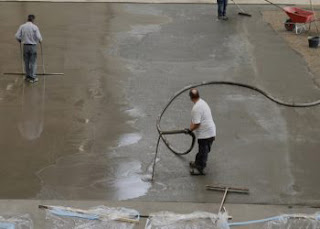Industrial floor coating refers to a process of applying a protective layer to concrete floors in industrial facilities. This coating acts as a barrier to protect the concrete from the wear and tear of heavy machinery and frequent foot traffic. The coatings also provide an anti-slip surface, which enhances safety for employees and equipment.
There are several types of industrial floor coatings available in the market, including epoxy, polyurethane, and polyaspartic. Each type of coating has its own unique properties, including durability, slip resistance, chemical resistance, and ease of application.
Epoxy floor coatings are known for their durability, chemical resistance, and low porosity. They are commonly used in industrial facilities where harsh chemicals and abrasive substances are frequently used. Epoxy coatings also provide a glossy finish that enhances the appearance of the floor.
Polyurethane floor coatings are another popular option for industrial facilities. They are known for their excellent wear resistance, high durability, and low maintenance. They also provide a high-gloss finish that can enhance the overall appearance of the facility.
Polyaspartic floor coatings are a newer type of coating that is rapidly gaining popularity due to its quick drying time, high durability, and ease of application. They are commonly used in facilities where a fast return to service is needed, such as in manufacturing and production facilities.
When selecting an industrial floor coating, it is important to consider the specific requirements of the facility. Factors such as the type of machinery used, the frequency of foot traffic, and the presence of harsh chemicals should all be taken into account.
The application process for industrial floor coatings typically involves the preparation of the concrete surface, the application of a primer, and the application of the coating itself. The process can be completed by a professional contractor or by facility staff with proper training.
Overall, industrial floor coatings play an important role in protecting concrete floors and enhancing safety in industrial facilities. They provide a durable, slip-resistant, and low-maintenance surface that can increase the lifespan of the concrete and reduce the need for frequent repairs and maintenance.




